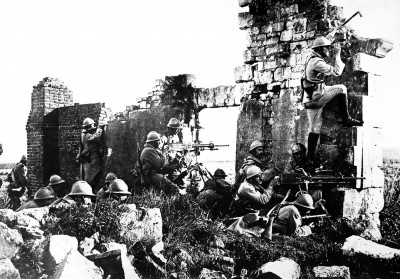The Great Class War, 1914-1918

Summary of Dr. Jacques Pauwels’ new book, “The Great Class War of 1914-1918”:
The Great War did not suddenly “break out” in that glorious summer of 1914, and it was not a case of collective “folly.” War had been “in the air” for many years, and was very much wanted. It was wanted, and was gratuitously unleashed, by Europe’s elite: a combination of the aristocracy of large landowners and the upper bourgeoisie, consisting of industrialists and financiers. It was wanted not only by the elite of Germany, but of all countries that would be involved in the bloody conflict. These gentlemen did not “sleepwalk” into the war, but entered it with a clear head and open eyes. The European elite expected that war would bring great benefits.
War would make it possible to put an end to the process of political and social democratization, a process that had started with the French Revolution in 1789. In other words, it would offer the elite an opportunity to arrest, and perhaps even to “roll back” the rise of the allegedly ignorant and dangerous lower classes, which threatened its power, wealth and privileges.
The elite also believed that war would exorcize the spectre of social revolution, eliminating that danger once and for all. The “symbiosis” of aristocracy and upper bourgeoisie also expected that war would yield considerable economic dividends, especially the acquisition of territories such as Mesopotamia (now Iraq), bursting with precious raw materials such as oil.
It is one of the major ironies of history that after four years of unprecedented bloodshed, the Great War produced exactly the opposite of what the elite had expected, namely, a revolutionary tsunami that swept through virtually all belligerent nations. The revolution succeeded in Russia, and elsewhere it could only be prevented by the hasty introduction of more of the kinds of democratic reforms of a political and social nature that the war was supposed to have phased out, such as universal suffrage and the eight-hour workday. Subsequent efforts by the elite to reverse this democratic tide produced fascism and led to a new “Great War” or, as some historians see things, to part two of the 20th century’s “Thirty Years’ War.”
The First World War, a “child” of the 19th century, thus revealed itself to be the “father” of the 20th century.
Details of the French and Dutch editions:
http://www.epo.be/uitgeverij/

